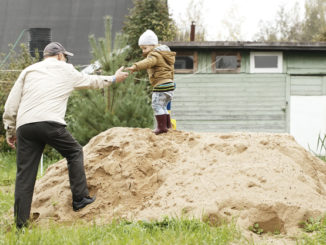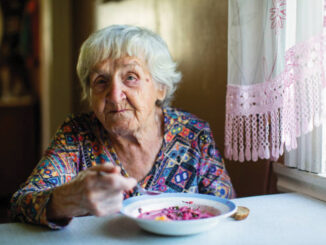
Since the COVID-19 pandemic occurred in early 2020, we have experienced many changes to our everyday lives. We used to hug or shake hands in greeting, gather freely with others (without masks), attend concerts, or go on vacation, without a second thought. Now, we must be mindful of the places we go, who we spend time with, and be hyper-vigilant about sanitary protocols like washing hands, wearing masks and taking temperature checks.
For the huggers of this world, this has been devastating. Grandparents may have missed a critical year in their grandchild’s life. Many have suffered through mental health challenges during this time of the “unknown.” In the business world, most companies have had to figure out how to work virtually. We had to learn how to use Zoom and create effective at-home workspaces. However, there were those with no choice but to continue reporting to work in person – for example, emergency personnel, healthcare workers and caregivers. Imagine how difficult it was for them to leave their homes each day, knowing the potential risk of being exposed to the virus. Perhaps you, as a caregiver, or your loved one experienced this.

Then we must consider those individuals confined to care facilities, many with dementia or other ailments requiring consistency in their care and daily routines. Suddenly they were unable to have visitors and see their loved ones. These disruptions can result in feelings of confusion, abandonment, isolation and uncertainty during a time when their need for human interaction is especially vital. Thankfully, there is a certain group of people who have been “called” to be the “calm” in the midst of an anxious time. They are born with a heart to serve others and to care for those in need. We refer to these special angels as Caregivers.
Caregivers possess many special qualities and skills. They can adapt to changing surroundings and to the wants and needs of their clients by providing individualized care. They may help with cooking, driving or simply by providing support during the good times and bad. Being a caregiver is so much more than simply assisting with tasks like showering and changing. It includes the ability to empathize with and meet those they care for at their level.
Some clients may request a companion who is upbeat and energetic, someone who will keep things moving and on a routine schedule. Other clients may be looking for a more reserved caregiver that quietly anticipates their needs yet stays in the background. If a client wants to look through pictures and reminisce, then let story time begin! If they are confused about how to use a fork, their caregiver will show them how. When they cry and mourn the loss of their mother who passed away three decades ago, they are consoled. If they want to play cards or Scrabble, let the games begin! And then there are those clients requiring a more skilled caregiver, who can provide support in all aspects of their daily lives. Sometimes, a caregiver may be a shoulder to cry on during difficult times.
Being a caregiver is not just a job, but a calling and commitment. A devoted caregiver allows their client’s family some respite from their daily caregiving responsibilities while allowing the client to still feel loved and supported.
The best caregivers are those who will step into a client’s particular season of life and walk alongside them. They advocate for their client’s best interest; are understanding of their client’s unique needs; do their best to ensure comfort and quality care are always provided; are understanding and non-judgmental; are respectful and trustworthy; can listen with empathy and compassion and treat their clients like family. But a caregiver must always respect the family dynamic. While they may be the individual providing the most care to the client during this time, they may not know the client/family history, particularly before the client’s decline in health, and therefore should not consider themselves to be decision-makers, or to think they know better than the family what is best for the client.
You may have a special someone in your life who exemplifies the meaning of a caregiver or you may encounter someone who is just extremely kind and caring. Either way, these individuals are a huge blessing and can come into people’s lives at the lowest time in their life and make a world of difference.
All the above characteristics describe what makes someone an ideal caregiver. Although we can always teach the hands-on skills necessary to keep a client safe, healthy and engaged, it is the possession of a special heart, filled with empathy, combined with the instinctive ability to anticipate needs, that truly make an outstanding caregiver.
Caregivers are shining stars and have been a light for so many individuals. Our caregivers deserve much praise and admiration for the support they have provided to their clients, especially during this challenging year.
-by Allie Pardue



